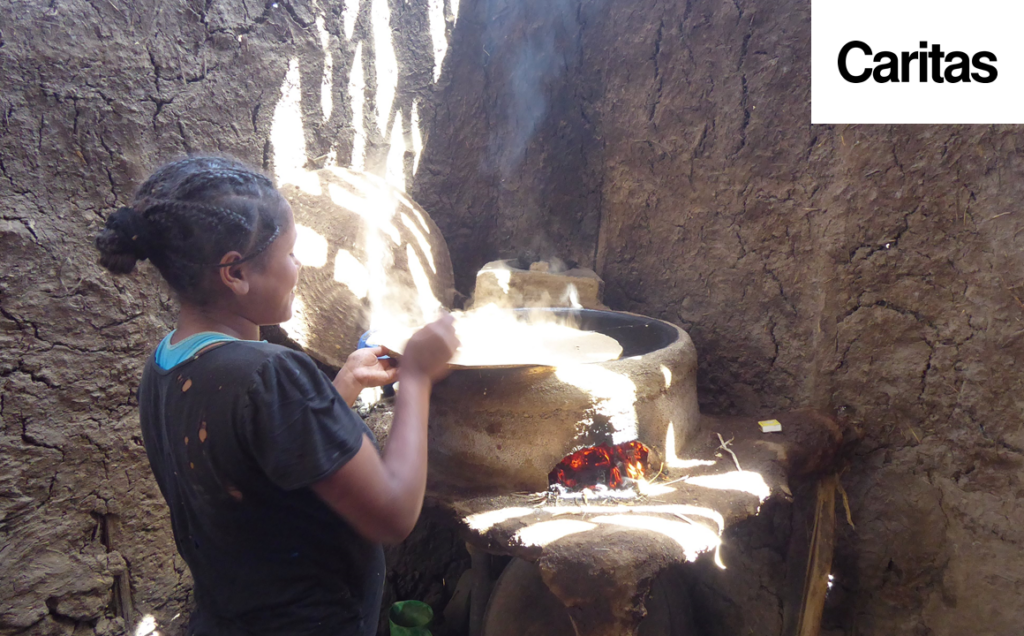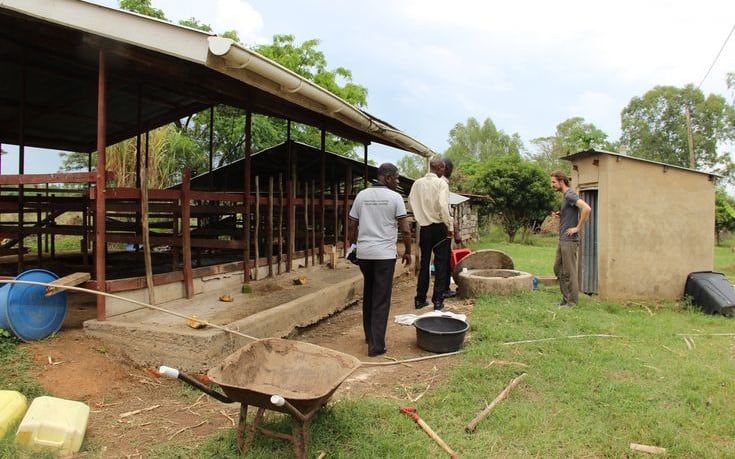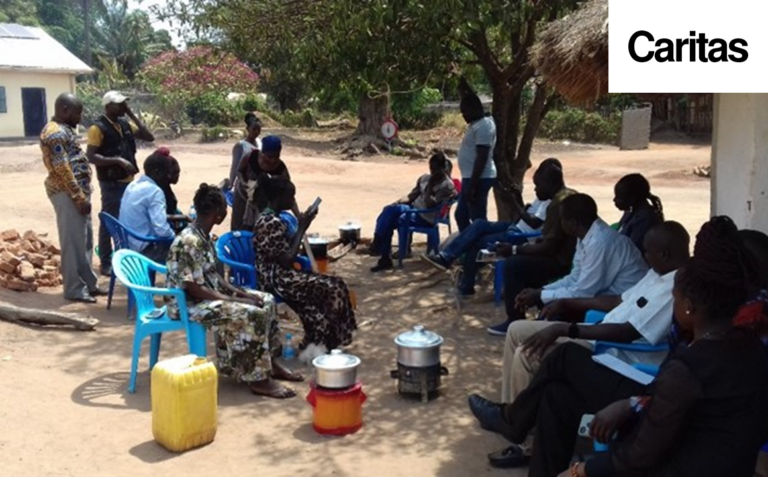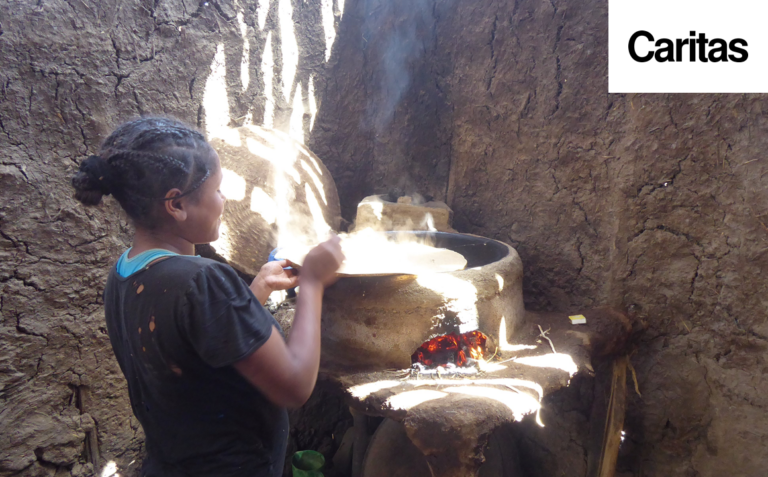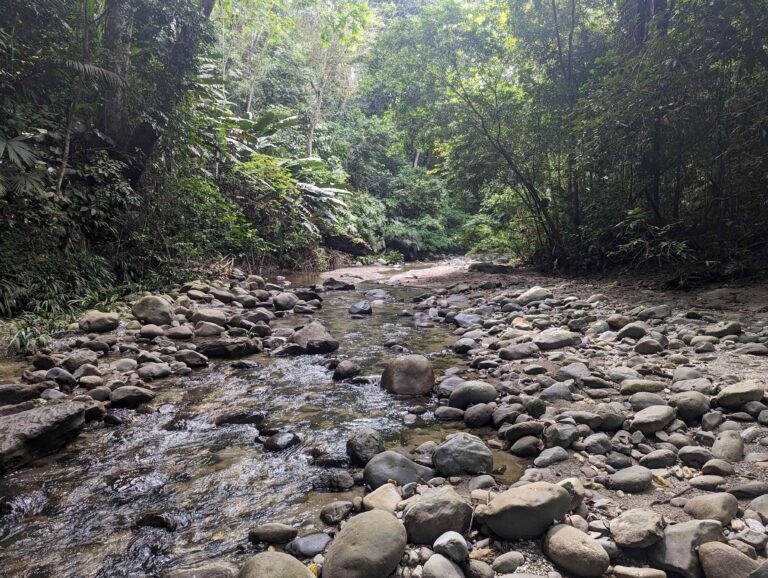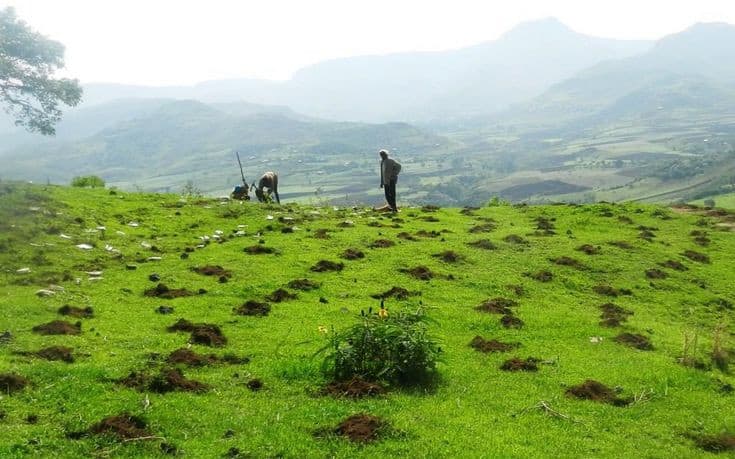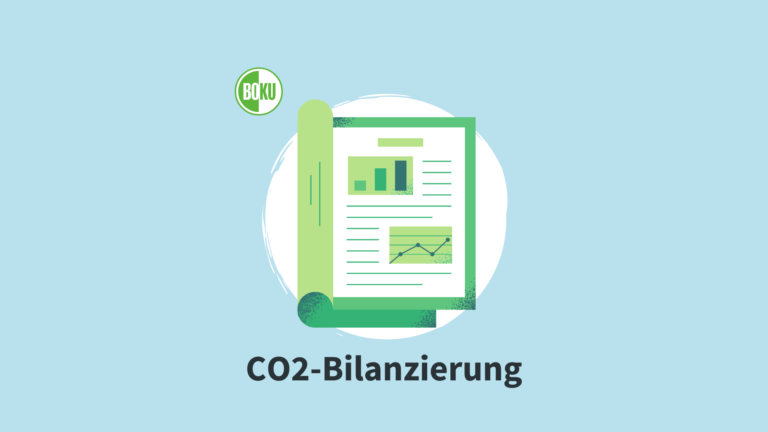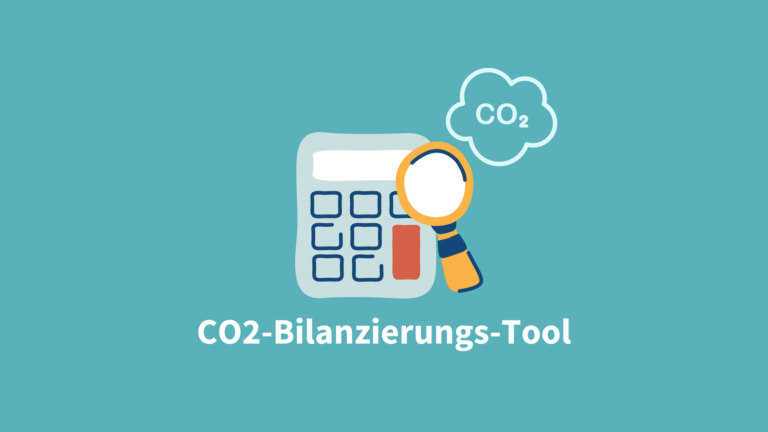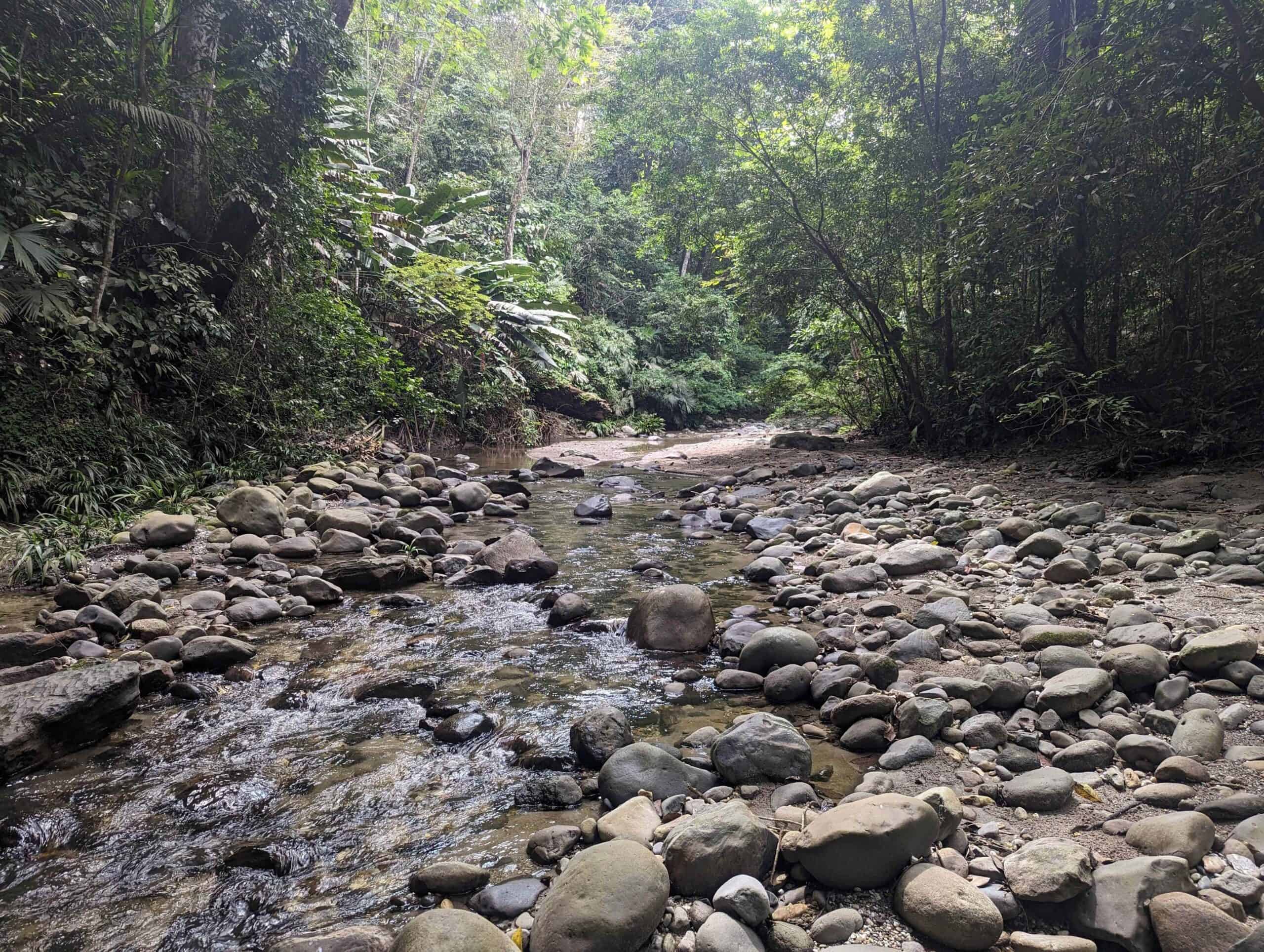
Forest conservation and species protection through nature conservation contracts and land purchase
The area of this nature conservation project is located in the centre of Colombia, near Dorada. In order to protect the forest, wildlife and plants, an area of 600 hectares is being developed as a model farm as part of the Las Mercedes project and a further 7,000 hectares are being managed sustainably in cooperation with local farmers. Sustainable management leads to higher yields in the long term, primarily through the introduction of an agro-forestry system using water buffaloes, thus protecting the forest from deforestation. In addition, the forest is used for research and artistic purposes as part of the project. This serves to raise sustainable awareness. In this way, the Las Mercedes project saves 12,000 tonnes of CO2 .
Forest Protection in the Colombian Rainforest
ERWARTETE EMISSIONSREDUKTION12,000 t CO2-eq jährlich über 12 Jahre, Einbehaltung eines Risikopuffers von 35%.
Project DurationStart 2020, support and monitoring for 12 years
Project Costs1.250.000 €
KOSTEN PRO vermiedener TONNE CO215,5 €
Situation without the ProjectDeforestation and overgrazing
Goal• Protection of a 600ha core area and
7,000ha of neighbouring Areas before deforestation • Transfer of the land to a sustainable agro-forestry system (buffalo husbandry in the forest) with higher yields compared to the situation without the project
Further Projects
Aufforstung und natürliche Wiederbewaldung in Nord-Gondar / Äthiopien
BOKU Climate Mitigation Projects

Sustainable management of pastures and forests
In order to tackle the problems of deforestation in Ethiopia, a participatory process was launched with local stakeholders as part of the BOKU climate protection project in North Gondar. Reforestation areas were defined that are protected from grazing by participatory agreements between land users. This enables controlled reforestation and natural regeneration of the areas. As a result, CO2 in the form of biomass and bound in the soil. The areas are managed jointly by the local population. The aim is to create a 30-hectare forest over a period of 30 years, which will save at least 5,300 tonnes of CO2 .Reforestation and Natural Reforestation in North-Gondar / Ethiopia (CONCLUDED)
ERWARTETE EMISSIONSREDUKTION5.300 t CO2-eq in 30 years
Project DurationStart 2012, monitoring for 30 years.
Project Costs131.600 €
KOSTEN PRO VERMIEDENER TONNE CO225,0 €
Situation without the ProjectDeforested region and overgrazing
GoalTransformation of 30 ha of fallow land to an unevenly-aged stable coppice forest
Accompanying research The role of seed dispersal, enclosures, shrubs and trees in the vicinity of churches and farms for the restoration of ecosystem diversity and Productivity in the Ethiopian Highlands und Bäumen in der Umgebung von Kirchen und Bauernhöfen für die Wiederherstellung der Ökosystemvielfalt und Produktivität in den Äthiopischen Highlands
Sustainable Climate Protection
Further Projects
Reforestation and agroforestry in San Miguel / Costa Rica
Klimaschutzprojekt in Costa Rica
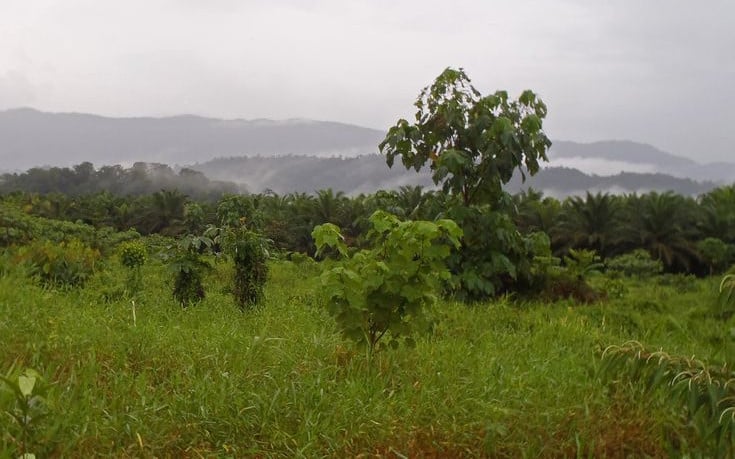
Local commitment with global impact
Tropical rainforests are the most species-rich ecosystems on earth and are also indispensable for stabilising the global climate. In January 2016, work began on reforesting an area of 14.6 hectares and converting it into a secondary rainforest. This should save around 4,400 tonnes of CO2 La2-storage from the atmosphere. Trained local employees ensure that the project is anchored locally. The reforestation is being organised by the Institute of Botany at the University of Natural Resources and Life Sciences in coordination with the association Rainforest of the Austrians and the La Gamba Tropical Station organised and coordinated.Reforestation and agroforestry in San Miguel / Costa Rica
ERWARTETE EMISSIONSREDUKTION4.400 t CO2 in 30 years
Project DurationStart 2016, monitoring for 30 years.
Project Costs136.000 €
KOSTEN PRO VERMIEDENER TONNE CO231,0 €
Situation without the ProjectIncreased deforestation in the region and lack of resources for afforestation
GoalTransfer of approx. 15 ha fallow land into a secondary rainforest
Accompanying researchExamination:
- of growth strategies,
- of allometric relationships,
- carbon sequestration
- and the growth of the trees
Sustainable Climate Protection
Further Projects
Safe Drinking Water and Clean Air for Soroti / Uganda
Klimaschutzprojekt Uganda: Solare Wasserdesinfektion
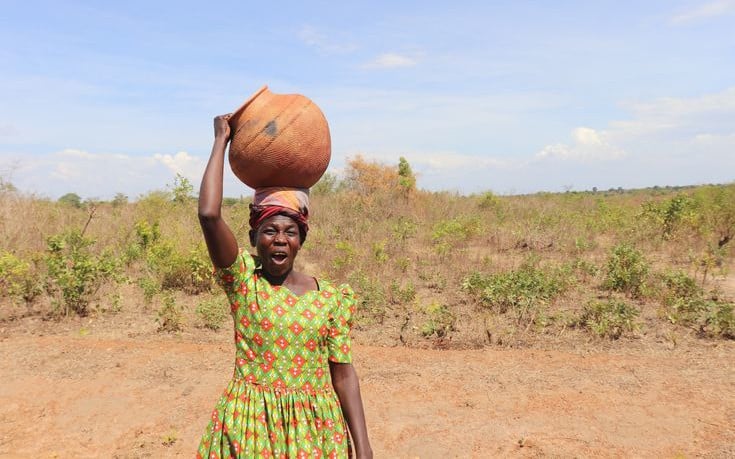
Addressing a variety of challenges
According to the WHO, about 70 percent of Uganda's rural population has no access to clean drinking water. Water is disinfected by cooking over open wood fires, but this also causes health problems. Many people already suffer from serious lung diseases caused by air pollutants from inefficient wood burning. Furthermore, Uganda has one of the highest deforestation rates in the world. An intact environment, clean air, and safe drinking water are, however, the prerequisites for a good life and are indispensable for education, ecological and social sustainability, and the fight against poverty.
Innovative approaches through a broad cooperation network
The use of solar water disinfection (SODIS method) drastically reduces the amount of firewood needed, which should save about 20,000 tonnes of CO2 in the next five years. Furthermore, this project will also counteract the development of harmful smoke in households. The cooperation between the BOKU Institute for Sanitation, Industrial Water Management and Water Pollution Control, the Water School Uganda, and the Makarere University in Kampala ensures a holistic approach to the project.
Water disinfection by UV radiation
2000 households in Soroti are being familiarised with the use of solar water disinfection (SODIS method) as part of the BOKU climate protection project. The Austrian start-up HELIOZ provides each household with a device for measuring UV radiation (WADI) that has been tried and tested in Africa and Asia. This makes it easy to check and guarantee the disinfection of drinking water. In addition to the CO2-mitigation, the project also brings additional social and ecological added value.
Safe Drinking Water and Clean Air for Soroti / Uganda
Emissions Reduction20.000 t CO2-eq in 5 Jahren
Project DurationStart 2019, monitoring for 5 years.
Project Costs329.500 €
KOSTEN PRO vermiedener TONNE CO220,0 €
Situation without the ProjectDeforestation of forest areas, CO2-emissions from the use of firewood for drinking treated water, and health hazards due to flue gas development during wood combustion
GoalUse of solar water disinfection (SODIS method with WADI) in 2000 households and improvement of the hygienic situation
Accompanying research Quantification of the impact of SODIS on CO2 and Sustainable Development Goals (SDGs)
The turbidity reduction required for SODIS with locally available agents verfügbaren Mitteln
Sustainable Climate Protection
Further Projects
Decentralized Composting in Addis Ababa / Ethiopia
Klimaschutzprojekt in Äthiopien: Kompostierung
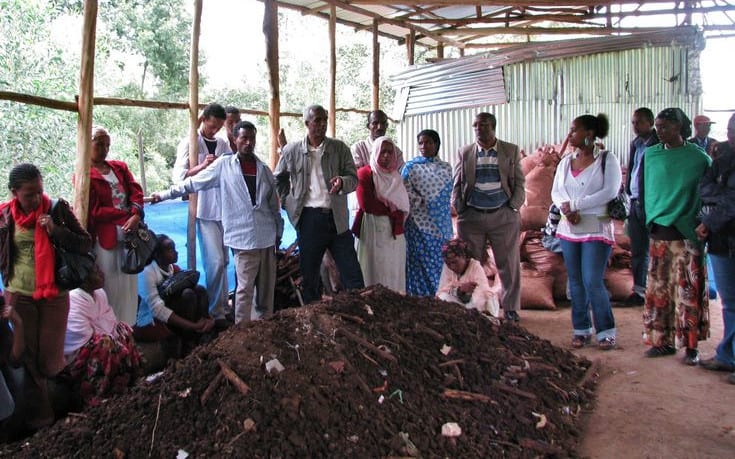
CO2-mitigation through composting of organic waste
Untreated waste due to lack of waste separation, low recycling efforts and inadequate landfilling is a major burden on the environment and the local population. Therefore, the aim of this BOKU climate protection project in Addis Ababa is to convert about 8,000 tonnes of organic waste per year into nutrient-rich compost, reducing about 200 tonnes of CO2 annually.
Involvement of local partners as an important success factor
Households, waste collectors, and other local stakeholders are trained in how to separate waste into organic and other material and collect it properly. The collected organic waste is processed in a composting plant commissioned as part of the project. Trained local workers learn how to control and monitor the composting process to ensure that the compost is of good quality. The compost obtained is then sold as high-quality, regional fertilizer and offers the local actors involved an additional income and safe working conditions.
Commitment to equal opportunities
Through the strong involvement of single women, the project also contributes to local social empowerment. This pilot project is intended to be the starting signal for further decentralized composting projects in Ethiopia. Not least through the show garden, a network for the exchange of knowledge and experience is to be created in order to establish decentralized and low-CO2waste management in Ethiopia. In addition to sinking CO2 and improving the quality of the soil, the general nutritional situation can also be influenced.
Decentralized Composting in Addis Ababa / Ethiopia
Emissions Reduction200 t CO2-eq per year
Project DurationStart of 2016
Project Costs35.000 € per year
KOSTEN PRO VERMIEDENER TONNE CO265 € - Co-financed by BOKU
Situation without the ProjectOrganic waste is not processed and generates greenhouse gas emissions
GoalCollection and composting of about 8.000 tonnes of organic waste annually
Sustainable Climate Protection
Further Projects
Reforestation and Regeneration of Local Forests in North-Gondar / Ethiopia
BOKU Climate Mitigation Projects
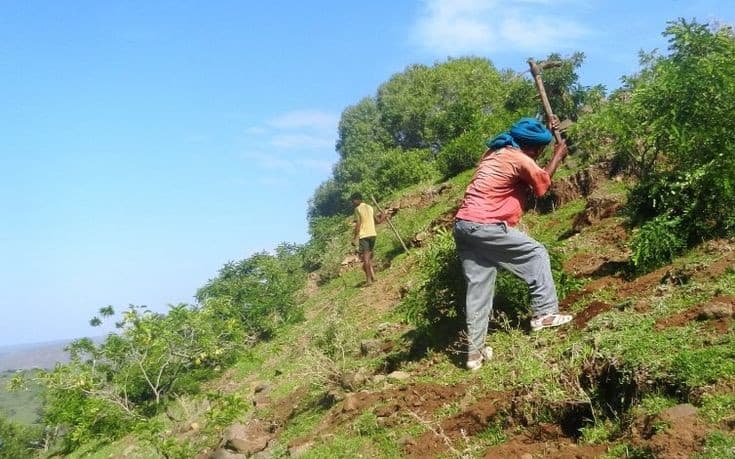
60 hectares of fallow land grow into a coppice forest
As a successor to the successfully completed carbon sequestration project, "Afforestation and natural reforestation in North Gondar / Ethiopia" , an adjacent area was approved for reforestation. Through sustainable management of the pasture land and so-called fencing areas, 60 hectares are specifically protected from grazing and can thus grow into coppice forest.
Local population, economy, and biodiversity benefit
Similarly to the percussing project, separate goals are being pursued in this ongoing project in addition to the CO2carbon sink of at least 11,000 tonnes: (1) the strengthening of local economies through the availability of wood, animal feed, and additional income from "non-timber forest products" such as honey, seeds, resins, etc. (2) The natural regeneration of regionally adapted trees and (3) the increase of local biodiversity as well as water and soil protection.
Self-determination of the village community and tree nursery program guarantee long-term success
The village communities manage the collective forest area together in a participatory process establishing common rules for the management of the new areas. Furthermore, the project will support the development of the local tree nursery programme for seedlings of native species and local "Farmer to Farmer Training" to further contribute to the development of additional sites for fencing areas in the region and for the afforestation of further areas in the region
Aufforstung und Regeneration lokaler Wälder in Nord-Gondar / Äthiopien (ausfinanziert)
Emissions Reduction11.200 t CO2-eq in 30 years
Project DurationStart 2018, monitoring over 30 years.
Project Costs218.000 €
Costs per Tonne of CO219,5 €
Situation without the ProjectDeforestation and overgrazing
GoalConversion of 60 ha of fallow land into unequal-aged, stable coppice forest, and participatory management of pasture and forest areas
Sustainable Climate Protection
Further Projects
Reforestation, Forest Protection and Agroforestry in Siwalik and Gauri- Sankar / Nepal
Klimaschutzprojekt in Nepal
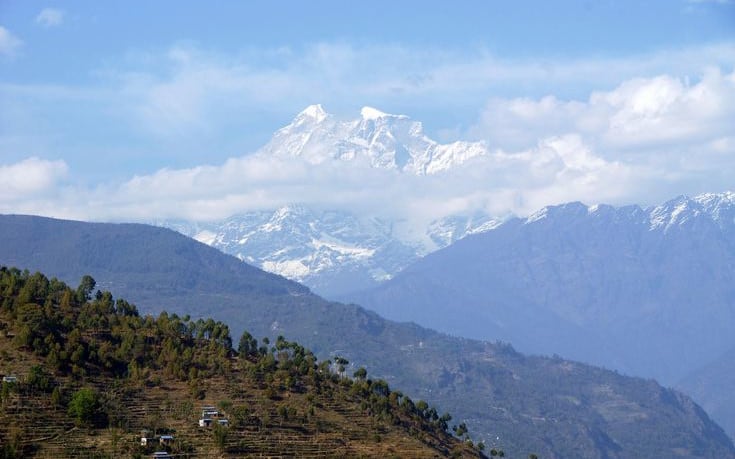
Counteracting the pressure on local forests
In Nepal, large areas of forest are disappearing, while grasslands and shrublands are steadily increasing One reason for this is deforestation for short-term fertile farmland. The 2015 earthquake also increased the pressure on forests as a resource for construction and firewood. The main objective of this BOKU climate protection project is to reforest around 80 hectares in the Gauri Sankar and Siwalik regions, of which 20 hectares are earmarked for agricultural use. In addition, 500 efficient biogas stoves will be put into operation.
Combination of forestry and agriculture as key to success
Besides ecological aspects, economic, and social aspects are in the foreground. To counteract forest degradation and its negative social consequences, national and local stakeholders were therefore involved in the selection of the regions in a participatory manner. The decisive factor in the selection of Gauri-Sankar and Siwalik was that they have great potential for establishing a sustainable agroforestry system that can serve as an additional source of income for the local population.
Einbindung lokaler Akteur*innen und Wissenstransfer
A reforestation and management plan was drawn up with the management committees of Gauri Sankar and Siwalik (among others), best practice examples were presented and training sessions were held. The training courses in sustainable agriculture and forestry (forest management, seedling propagation and forest fire protection) and the commissioning of tree nurseries ensure the sustainability and stability of the project and are well received by the local population. In this win-win situation, CO2 is mitigated by reforestation, further emissions and harmful flue gases are reduced (cooking stoves), and a new economic basis is created.
Reforestation, Forest Protection and Agroforestry in Siwalik and Gauri-Sankar / Nepal
Expected Emissions Reduction17.700 t CO2-eq in 30 years
Project DurationStart 2016, monitoring for 30 years.
Project Costs390.000 €
KOSTEN PRO vermiedener TONNE CO222,0 €
Situation without the ProjectForest degradation and deforestation
GoalReforestation of 80 ha of fallow land and establishment of agroforestry
Accompanying researchCommunity forestry The ecology of regeneration of the tree species Quercus The influence of land use types on floristic diversity, vegetation patterns and carbon sequestration Vegetationsmuster und Kohlenstoffbindung
Sustainable Climate Protection
Further Projects
Community Biogas Plants in Gulu / Uganda
Klimaschutzprojekt in Uganda: Biogasanlagen
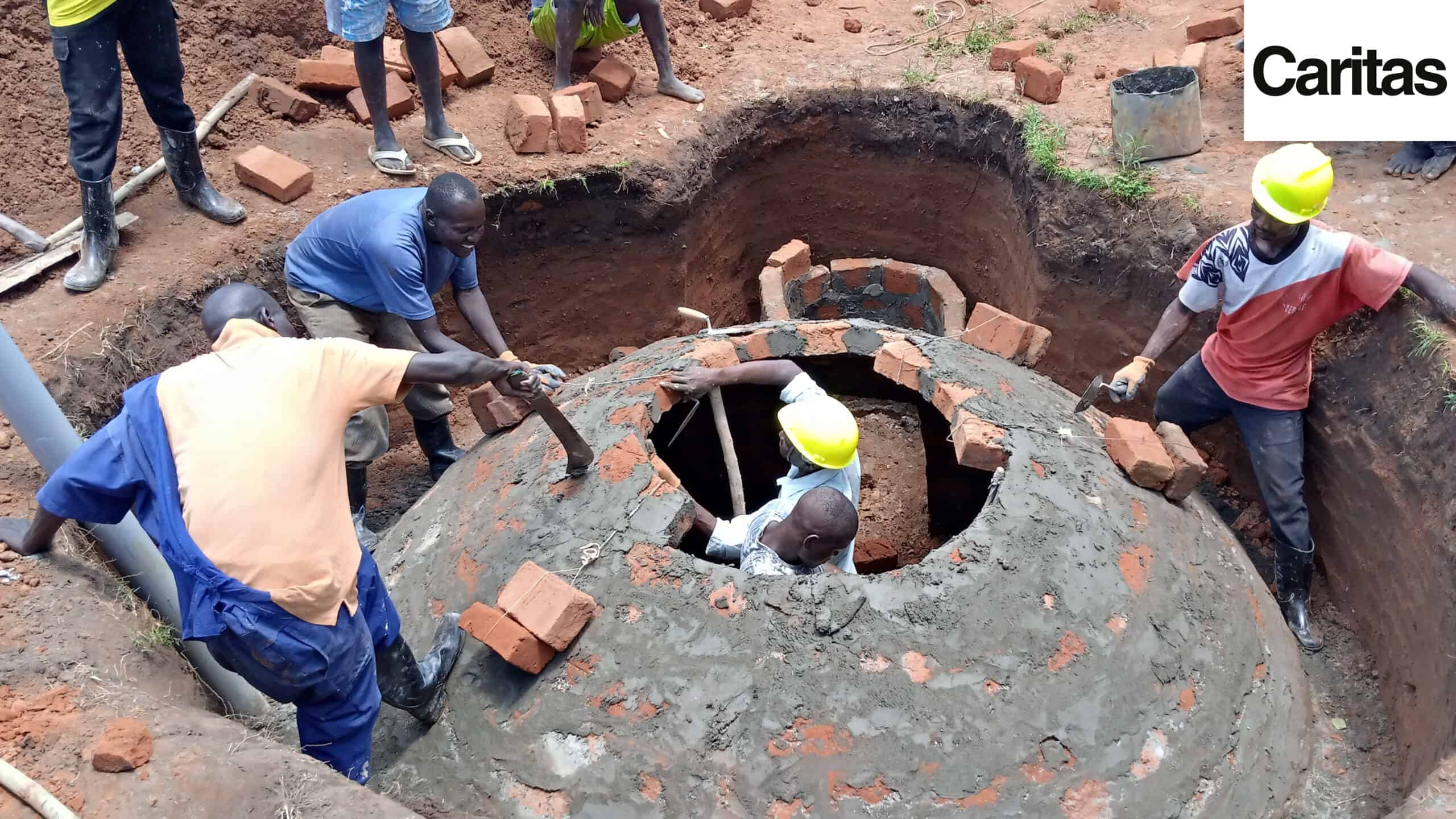
Small-scale biogas plants instead of deforestation and erosion
This BOKU climate protection project reduces CO2-emissions through the use of biogas plants. Increased cooking on open fires leads to heavy over-exploitation of forests, the release of hazardous carbon compounds and soil erosion. The purchase of charcoal and firewood is increasingly becoming an economic burden for the local population. The construction of small biogas plants and their proper commissioning offers an alternative and energy-efficient cooking option.Strengthening of the community through solidarity implementation
The joint organization of the introduction of animal manure and the distribution of gas and fermentation residue (fertilizer) strengthens the sustainable development of the area. The bio-gas plants are based on a collaborative approach, in which households with more animals support households with fewer animals by introducing more animal manure into the plants. The produced bio-gas and fertilizer are distributed to the respective households in solidarity.Seedlings and training courses flank the project
Households are provided with gas stoves and training as part of the project. They are also given seedlings so that they can use the fertilizer produced immediately. The scientific support of the project is provided by BOKU and the University of Gulu and offers research opportunities to students and young scientists. Thus, this BOKU project not only makes a significant contribution to climate change mitigation and adaptation but also improves the living situation in Uganda through co-benefits.Community Biogas Plants in Gulu / Uganda
Emissions Reduction18.000 t CO2-eq in 6 years
Project DurationStart 2020, duration of 6 years
Project Costs703.200 €
KOSTEN PRO vermiedener TONNE CO219,5 €
SITUATION WITHOUT THE PROJECTDeforestation of forest areas, CO2 emissions from the use of firewoord and charcoal, and health hazards from fuel gasses
GoalConstruction of 200 bio-gas plants for a total of 800 households and schools, and an increase in food production.
Project DeveloperCaritas Carinthia, IFA - Institute for Environmental Biotechnology (from BOKU), Caritas Gulu and Gulu University, Uganda
Co-financing Partners and (other) PartnersCaritas Upper Austria, Bruder und Schwester in Not Innsbruck (BSIN), Missio
Accompanying research
- Increasing the efficiency of biogas household systems below 30°C
- Investigation of energy self-sufficiency systems in countries of the Global South
Sustainable Climate Protection
Further Projects
Privacy Overview
| Cookie | Dauer | Beschreibung |
|---|---|---|
| cookielawinfo-checkbox-analytics | 11 months | This cookie is set by GDPR Cookie Consent plugin. The cookie is used to store the user consent for the cookies in the category "Analytics". |
| cookielawinfo-checkbox-functional | 11 months | The cookie is set by GDPR cookie consent to record the user consent for the cookies in the category "Functional". |
| cookielawinfo-checkbox-necessary | 11 months | This cookie is set by GDPR Cookie Consent plugin. The cookies is used to store the user consent for the cookies in the category "Necessary". |
| cookielawinfo-checkbox-others | 11 months | This cookie is set by GDPR Cookie Consent plugin. The cookie is used to store the user consent for the cookies in the category "Other. |
| cookielawinfo-checkbox-performance | 11 months | This cookie is set by GDPR Cookie Consent plugin. The cookie is used to store the user consent for the cookies in the category "Performance". |
| viewed_cookie_policy | 11 months | The cookie is set by the GDPR Cookie Consent plugin and is used to store whether or not user has consented to the use of cookies. It does not store any personal data. |

